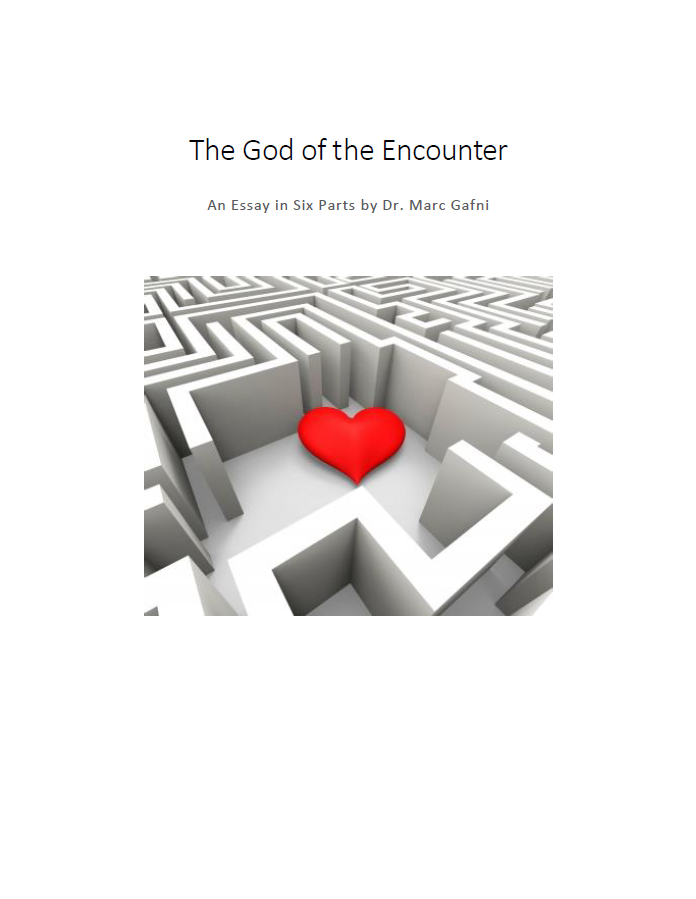The God of the Encounter: The Glory of the Personal, Part 4
by Dr. Marc Gafni | (part 4)

It is precisely this fellowship of prayer and prophecy, which we might refer to as the second face of God. In this pointing out instruction, God in the first person would be the face of god you feel flowing through you in meditation. God in the third person would be the face of God reflected in your radical amazement at the wonder and infinite intelligence displayed in every nook and cranny of existence. God in the second person is in the mystery of the encounter between God and Man. A relationship of intimacy is revealed between the finite and the infinite. All of the infinite power, glory, and intelligence of the first person and third person of the divine were felt and revealed as relationship in the second encounter between the prophet and God. The precise flip side of prophecy is prayer. In their essence, they are the same. Both are expressions of the fellowship between man and God. The difference is simply this. In prophecy, God initiates and God invokes. In prayer, man initiates and man invokes.
What is key to grasp here is that the second person of God is not a primitive metaphor for the simple people who cannot quite grasp the depth of god as principle or Tao or spirit or the evolutionary impulse. God in the second person is not, as so many American spiritual teachers have suggested, a left over touching trinket of the old religion. Not in the slightest. The full integral realization of enlightenment feels in the core of it’s being all three faces of God. Central is the face of God the lover and beloved. This is God for whom we yearn. This is God of whom we know that wherever we fall, we fall into God’s hands. This is not a product of projection, childish fantasy, or immature imagination.
This is a knowing of the presence, which emerges directly from enlightened realization.
The personal, caring, compassionate embrace of the divine is a profound realization of the eye of spirit. If a teacher has not realized the personal embrace of God as part of their realization, they would do well to bow their head in humility and yearning instead of dismissing that of with which they have no direct contact or realization.
None of this means that God is your grandfather in the heaven waiting to give you candy. Your realization of God in the second person has little to do with a cosmic vending machine dressed as your favorite uncle. Rather, God is the transpersonal nature of all that is.
The transpersonal is not pre-personal. God is more than personal, not less than personal.
God is Personal-Plus not Personal-Minus. It is somewhat like saying God is not physical. That does not mean that God is less real or less concrete than the physical. It means that the flatland of the merely physical cannot even begin to express the absolute sensual pulsating realness that manifests in the direct first-person experience of the divine.
God is not merely impersonal. When you say impersonal, we think of a person with whom we cannot make contact. Impersonal means without the possibility of love and intimacy. In both the experience of God in your first person as cosmic consciousness or your experience of God in the second person Encounter, you will realize that radical love, intimacy, and contact is the very quality of the experience.
For more of this essay, see Part 1, Part 2, Part 3, or Part 5.
You can also join Dr. Marc Gafni’s contacts on LinkedIn.


